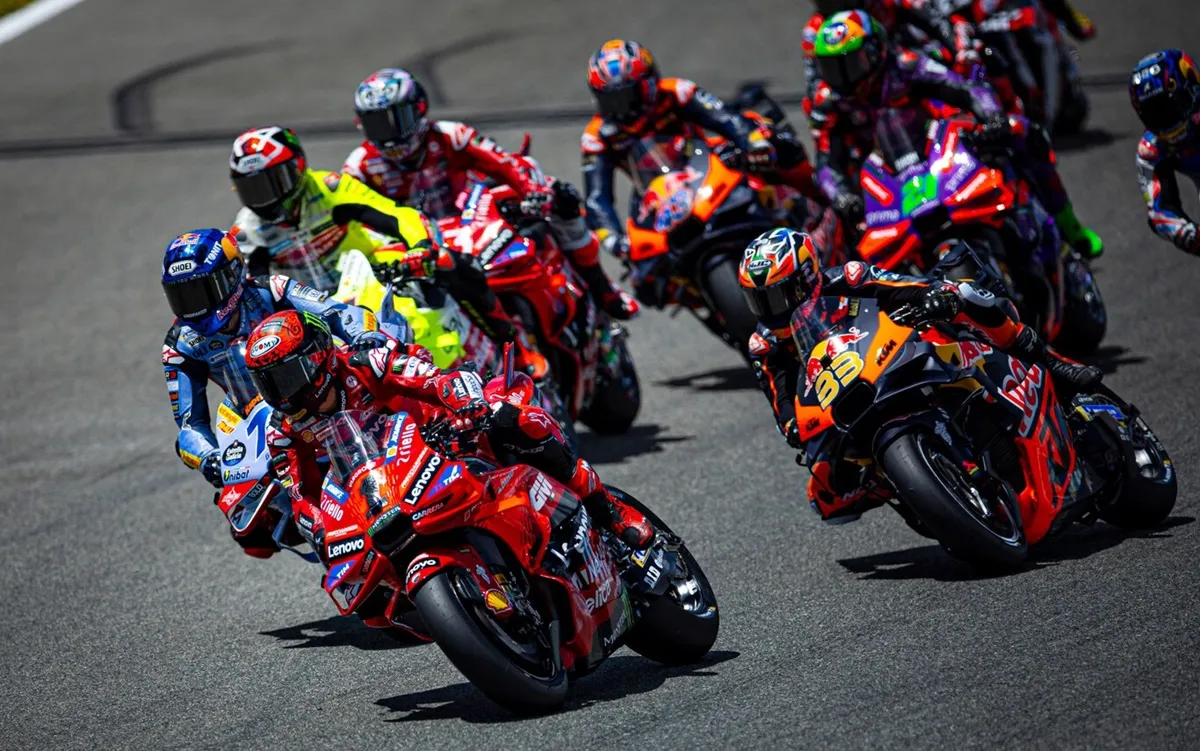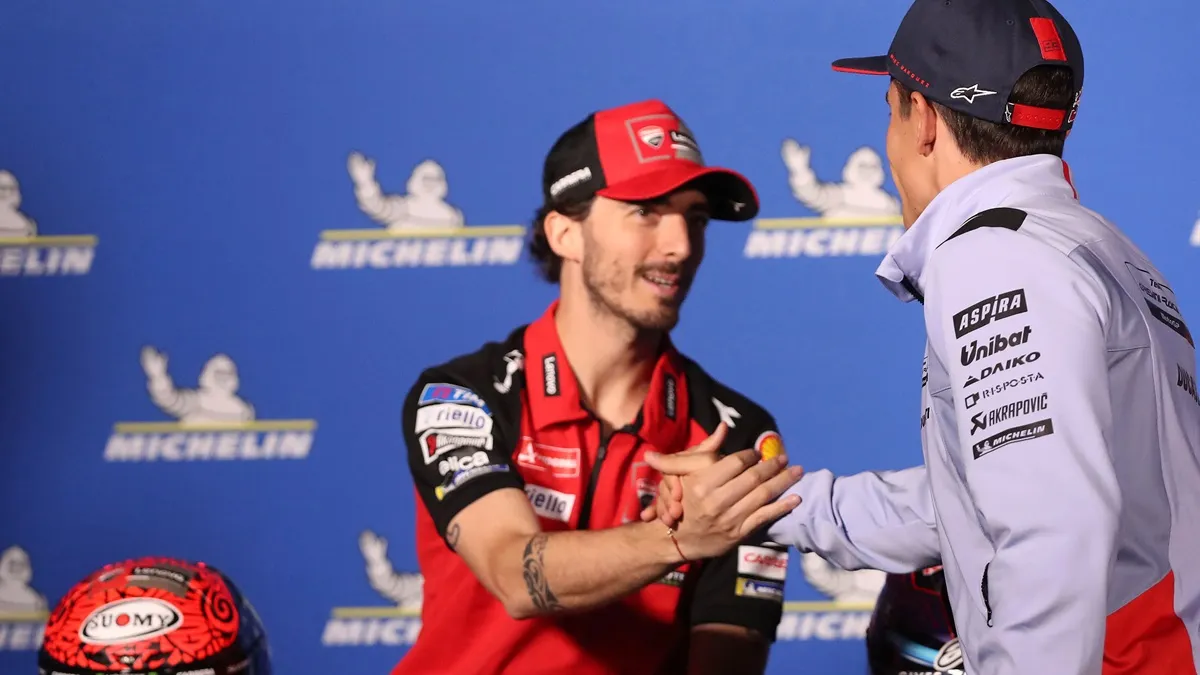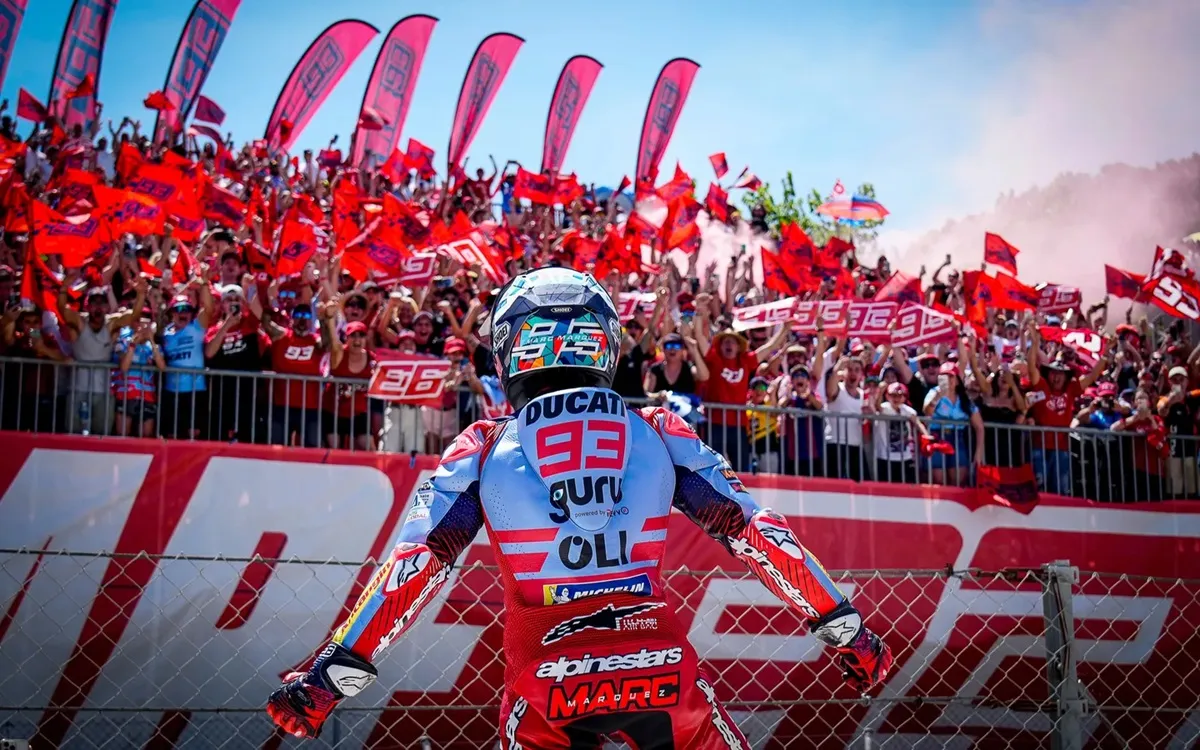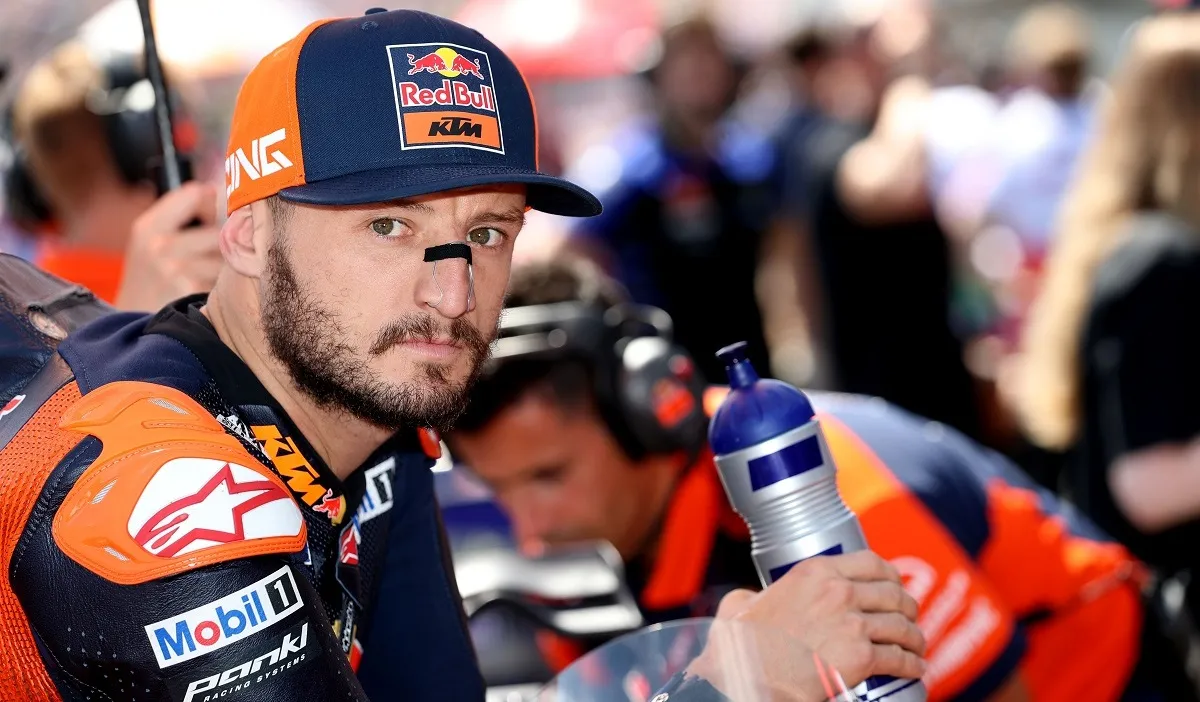
Many believe that Gigi Dall'Igna is not very aware of what's coming his way. Despite his eminently technical vocation, his position as general manager of Ducati means that his sphere of influence is not limited exclusively to the design of the Desmosedici, the most dominant prototype in MotoGP history.
His voice was also decisive in the decision to let Jorge Martin go and incorporate Marc Marquez, who this year will form, together with Francesco Bagnaia, one of the most powerful line-ups ever.
Between the past season, in which the Borgo Panigale brand dominated again, and the one that will start in March, Dall'Igna spoke to Motorsport.com to discuss aspects that are not only limited to what happens on the track.
Q. How many motorcycles do you have at home?
GD: I have quite a few, actually. It would be around 10.
Q. Is there any that you particularly appreciate?
GD: There's more than one. But all the bikes bring incredible memories for me because each season generates situations, problems, and solutions. Surely, the bikes that have won the title are very important, but every time I keep a bike it's because I have a special memory.
Q. Do you have all the MotoGP bikes?
GD: Not all of them, but I do have a few.
Q. Do you like riding motorcycles?
GD: I used to love riding motorcycles; I've taken many vacations on a motorcycle, but I'm not one of those who go on the track. The only problem I have is that it's not something that can be enjoyed as a family, and currently, I find it difficult to find the necessary time to travel. Now I limit myself to taking a ride around the house.
Q. Since you joined Ducati in 2014, the brand's results dynamics have followed an undeniably upward trend. This last season has been the best of all. Doesn't it generate a bit of anxiety to always be improving?
GD: For me, it's important to win, not to dominate. When one dominates, you become unlikeable. I work to continue winning, although it may happen that sometimes we exaggerate a bit and find ourselves in a situation like the current one. But my goal is not to surpass the previous year every year; it's simply to win.
Q. And do you think that with the numbers you've accumulated in the last three years, you're still likeable to any other brand?
GD: (laughs) Let's say there are many who see me as unlikeable in this paddock, and I feel bad about it...
Q. What has been the biggest technological advance in MotoGP since you've been in MotoGP?
GD: Surely the aerodynamic part, which is more visible on the bike, because it has changed the direction of bike development. But the ride height device has also been a good idea applied very intelligently.
Q. How was the idea of the rear ride height device born?
GD: As it always happens, things seem much simpler over time than they were when they were conceived. The idea is quite simple and comes from observing telemetry. Before the rear device, we realised that we reached the engine limit – the point where the bike's performance is limited by the engine's capacity – was very little, because the bike lifted a lot. At Mugello, for example, increasing power by ten horsepower barely had an impact on lap time, because the bike tended to lift more. So we focused on thinking of a completely automatic system so that the bike would regulate the centre of gravity, depending on each point of riding. That was extremely complicated. Then, inspired by all the things that Formula 1 drivers have to do during each lap, we thought that maybe the rider could help us simplify the system. Getting the rider to do something more than just ride during the race.
Q. After the trajectory that precedes you, especially in the last three years, do you already know how long you want to be in MotoGP?
GD: I've done many things in motorcycles since I entered the first racing department in 1992. The time will come to turn off the computer and dedicate myself to something else. In any case, the technical level of the people and executives working at Ducati is very high, and I think the factory would manage just fine without me.
Q. Speaking with engineers who were at Ducati five, six, or seven years ago, they highlighted that the level of technical meetings that were already taking place at that time was tremendously superior to that of other brands. And now, they say that gap has grown much more. How is this work protocol implemented, and what makes it so superior to the rest?
GD: The culture and general level of the entire team have to be as high as possible. For this reason, specialist technicians not only participate in meetings in their area. For example, in engine-related meetings, I also want those who deal with the chassis, electronics, and so on to attend. Because, in this way, everyone is aware of the problems that others have. This way, I try to raise the level of all of them. I want the technical culture of the motorcycle to expand to the maximum level within the racing department.
Q. First Fabiano Sterlacchini left, then Max Bartolini. And Ducati keeps winning, or even more. Why is this brand immune to these exits?
GD: By spreading this level of technical culture of the motorcycle, we have people behind who improve, who prosper, and who are capable of assuming the role of those above them. There's always a replacement within Ducati. We are the only ones who have never gone to recruit anyone from another brand, but we have always generated the engineers that we later see in the garage.
Q. At what point did you think it was a good idea to allow an independent team to fight for the title on equal terms with the works team?
GD: That was always my philosophy. Giving Ducati riders the best possible material also raises the general level of the system, and the factory team also benefits from this. If a rider is faster, the others will follow.
Q. And was it easy to convince the business side of Ducati to allow an independent team to win?
GD: It's always complicated, because there's always a more important team, and in this case, it's the factory one because sponsors pay to be linked to our brand. But victories, in reality, if you analyse it well, serve everyone. We are the team that has always fought for the title, since 2021. All those who have trusted us have obtained the visibility they were looking for.
Q. Is it wrong to think that if Ducati bet on Marc Marquez for 2025, they made a mistake since Jorge Martin won the title?
GD: This was one of the possibilities that could occur. The thing is quite simple. We wanted to keep all three riders, but the system placed multiple obstacles in our way, and in the end, we had to decide on only two. At that moment, we opted for Pecco and Marc. But when we chose, we already knew that Martin could win the championship.
Q. Was it very difficult to opt for him when he hadn't yet won a race with Ducati?
GD: We're all human, and so are the riders. It's important to project the level of growth you obtain to try to know if it will be better or worse than another solution you might have at your disposal. It's not an easy exercise, it's not simple, but that's our job. Sometimes we get it right and other times we make mistakes because we're human too.
Q. Does losing the number 1 matter or only relatively?
GD: Number 1 is just a number; what matters is that Martin won the title on a Ducati.
Q. How do you plan to get Marquez and Bagnaia to think about the common good in the indications they give to develop the bike?
GD: I've always had a lot of consideration for what the riders say. But afterwards, the decision of what to do on the bike corresponds to the engineers. Obviously, they listen to the riders' comments, but the configuration is chosen by the engineers. In the past, we've already made differences between one rider and another. We will always try to determine the advantages and disadvantages of one solution or another, to look for an intermediate option.
Q. How do you feel when you hear that your influence is similar to that of Adrian Newey in Formula 1?
GD: I've often been compared to Newey, but the big difference between us is that he is eminently an engineer. Newey makes decisions that only affect the car. I, on the other hand, have to make decisions that affect beyond the technical aspect. That affect the riders, the team, and so on. I see myself more as a manager than as a technician. That said, I'm passionate about technology and I have to make decisions related to the technical aspect.



